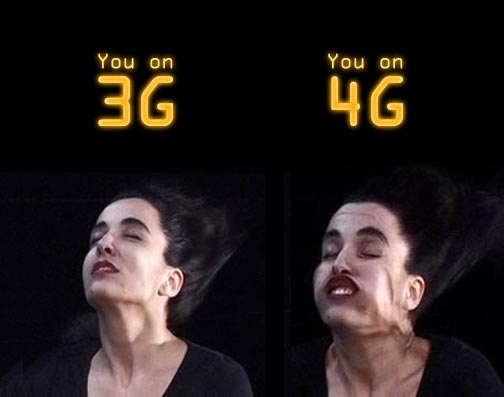|
|
In this edition of Views and News, ETI focuses on several important events in the wireless world. There's more to Google's just-announced acquisition of Motorola Mobility than just getting to the smartphone hardware business. We try to clear up confusions about evolving wireless technologies, where the same terms seem to have different meanings, or sometimes no precise meaning at all. And finally, we explore the rumors that Sprint will finally get to offer the iPhone 5.
Read on below, or navigate over to
econtech.com
where you can read online, or download a
printer-friendly version.
|
|
Google goes shopping
|
|
 On August 15, Google announced its $12-billion plans to acquire Motorola Mobility, the ailing spin-off of Motorola's cell phone division. Once the leading manufacturer of cell phones in the United States after the smash hit RAZR phone, Motorola's mobile fortunes declined as users switched to smart phones with larger screens and better data capabilities, as well as to cheaper basic handsets manufactured by rivals like Nokia. Motorola failed to innovate beyond the RAZR in a rapidly evolving marketplace. It was not a surprise when the mobility division was carved out and spun off from Motorola's core business, nor that Moto Mobility was up for sale. Given that Motorola Mobility was running at an annual loss of nearly $80-million, Google's offer of $12-billion seems like a lot. Why would Google spend so much?
On August 15, Google announced its $12-billion plans to acquire Motorola Mobility, the ailing spin-off of Motorola's cell phone division. Once the leading manufacturer of cell phones in the United States after the smash hit RAZR phone, Motorola's mobile fortunes declined as users switched to smart phones with larger screens and better data capabilities, as well as to cheaper basic handsets manufactured by rivals like Nokia. Motorola failed to innovate beyond the RAZR in a rapidly evolving marketplace. It was not a surprise when the mobility division was carved out and spun off from Motorola's core business, nor that Moto Mobility was up for sale. Given that Motorola Mobility was running at an annual loss of nearly $80-million, Google's offer of $12-billion seems like a lot. Why would Google spend so much?
Google's purchase of the phone manufacturing company is certainly a step in a different direction for the advertising, search and software giant, although not a wild departure, given Google's massive push into the mobile phone business through its Android operating system. The synergies between the phone maker and the Android OS are obvious, but it is likely that there is more to Google's purchase than just vertical integration.
Continue reading at econtech.com
|
|
3G, 4G, LTE, WiMAX: what do they all mean?
|
|
 When shopping for technology products, consumers typically have at their disposal a wide array of technical specifications that allow for meaningful side-by-side comparisons of competing products. Shopping for a computer? Compare processor speeds, hard drive capacity, quantity of RAM and the number of USB ports. Looking at digital cameras? Check out the number of megapixels, memory card capacity, and the optical zoom. It's true that you cannot simply assume a "bigger is better" mentality and get the best product by grabbing the device with the largest specs – any informed shopping requires consumer education. But these metrics make product comparisons, at least across any single feature, relatively easy and transparent.
When shopping for technology products, consumers typically have at their disposal a wide array of technical specifications that allow for meaningful side-by-side comparisons of competing products. Shopping for a computer? Compare processor speeds, hard drive capacity, quantity of RAM and the number of USB ports. Looking at digital cameras? Check out the number of megapixels, memory card capacity, and the optical zoom. It's true that you cannot simply assume a "bigger is better" mentality and get the best product by grabbing the device with the largest specs – any informed shopping requires consumer education. But these metrics make product comparisons, at least across any single feature, relatively easy and transparent.
Now try shopping for mobile phones and cell phone service. 3G, 4G, LTE, WiFi, WiMAX – the "technical" acronyms are certainly plentiful, and seem to denote some qualitative or quantitative differences across services and devices – 4G is better than 3G, right? But is there actually any meaning behind these terms? Most of them actually have no specific technical underpinnings, at least not in the eyes of US wireless carriers, but the terms do carry some meaning.
Continue reading at econtech.com
|
|
Is the iPhone 5 Sprint's silver bullet?
|
|
 Sources close to Sprint have suggested that the number three wireless carrier in the US will begin selling Apple's newest iPhone sometime in mid-October. The release of the new iPhone is major news: searching for "iPhone 5" returns nearly 2-billion hits on Google, and this version of Apple's wildly successful smartphone will be the first to be released under Apple's new CEO Tim Cook. It is certainly big news for Sprint, which has, up until now, watched from the sidelines as first AT&T and then Verizon added the device to already strong product lineups. Sprint has sat on this particular sideline for more than four years – four years marked by subscriber attrition, financial losses, and failed attempts at integrating the Nextel iDEN network. So while the iPhone is certainly "big" news for Sprint, it's unclear whether the new device will be Sprint's silver bullet, or even good news.
Sources close to Sprint have suggested that the number three wireless carrier in the US will begin selling Apple's newest iPhone sometime in mid-October. The release of the new iPhone is major news: searching for "iPhone 5" returns nearly 2-billion hits on Google, and this version of Apple's wildly successful smartphone will be the first to be released under Apple's new CEO Tim Cook. It is certainly big news for Sprint, which has, up until now, watched from the sidelines as first AT&T and then Verizon added the device to already strong product lineups. Sprint has sat on this particular sideline for more than four years – four years marked by subscriber attrition, financial losses, and failed attempts at integrating the Nextel iDEN network. So while the iPhone is certainly "big" news for Sprint, it's unclear whether the new device will be Sprint's silver bullet, or even good news.
In the February 2011 issue of Views and News we discussed the announcement that Verizon would begin to carry the iPhone 4. Issues such as cross-carrier compatibility, 3G vs 4G speeds and the presence of successful Android handsets in the marketplace led us to believe that the only sure winner in expanding the iPhone handset market was Apple. Six months later, the same appears to be true. And some are speculating that the iPhone might even be a burden for Sprint as it challenges AT&T's proposed takeover of T-Mobile.
Continue reading at econtech.com
|
|
|
|
About ETI. Founded in 1972, Economics and Technology, Inc. is a leading research and consulting firm specializing in telecommunications regulation and policy, litigation support, taxation, service procurement, and negotiation. ETI serves a wide range of telecom industry stakeholders in the US and abroad, including telecommunications carriers, attorneys and their clients, consumer advocates, state and local governments, regulatory agencies, and large corporate, institutional and government purchasers of telecom services. |
|
|